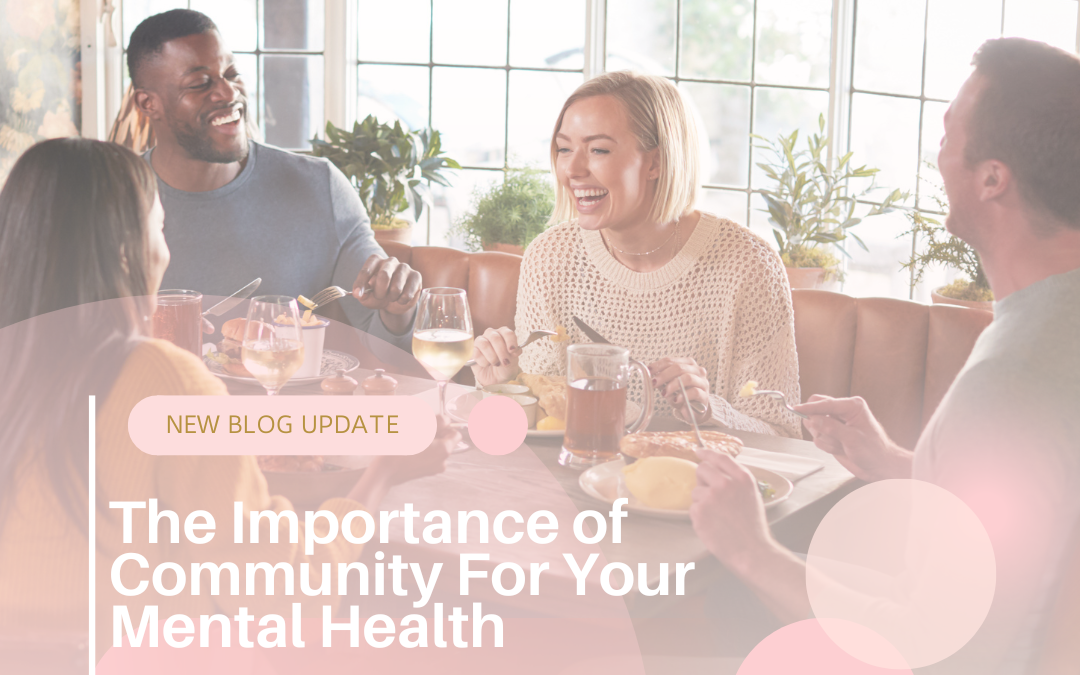In our increasingly digital and individualistic world, many people find themselves feeling isolated and disconnected, even when surrounded by others. Yet, one of the most powerful tools for supporting mental health is a sense of community. Being part of a supportive network fosters belonging, reduces feelings of loneliness, and provides a foundation for emotional resilience.
What Does “Community” Mean?
Community is more than just a group of people—it’s about meaningful connections. It might be your family, friends, coworkers, neighbors, or a group that shares common interests or values. A community provides a sense of belonging and mutual support that enhances emotional well-being.
The Mental Health Benefits of Community
-
Reduces Loneliness and Isolation
Humans are inherently social beings. Loneliness, especially when chronic, can lead to increased stress, anxiety, and depression. Being part of a community helps combat these feelings by fostering connection and a sense of belonging. -
Provides Emotional Support
When life feels overwhelming, having people to lean on can make a world of difference. A supportive community can offer empathy, encouragement, and a listening ear during tough times. -
Builds Resilience
Knowing you have people who care about you provides a safety net that makes it easier to face challenges. Communities often help individuals navigate crises, from personal setbacks to larger life changes. -
Encourages Healthy Habits
Being part of a community often inspires accountability and positive behaviors. For instance, participating in a fitness group, support group, or religious community can encourage self-care and healthier routines. -
Promotes a Sense of Purpose
Contributing to a community—whether through volunteering, mentoring, or simply showing up for others—gives life greater meaning. It reminds us that we’re part of something bigger than ourselves. -
Offers Diverse Perspectives
Interacting with people from different backgrounds and experiences broadens our perspectives and helps us grow. It fosters empathy and reduces feelings of judgment, both toward others and ourselves.
Ways to Cultivate Community
-
Reconnect with Existing Relationships
Start with the people already in your life. Reach out to family members, friends, or colleagues you’ve lost touch with. A simple message or phone call can reignite connections. -
Join Groups or Clubs
Find local groups or online communities centered around your interests, hobbies, or values. Whether it’s a book club, hiking group, or creative workshop, shared activities are a great way to bond with others. -
Volunteer
Volunteering not only allows you to give back but also connects you with like-minded individuals. It’s a fulfilling way to build relationships while making a positive impact. -
Attend Community Events
Check out local events like farmers’ markets, festivals, or workshops. Being in these spaces provides opportunities to meet people who share your interests. -
Seek Support Groups
If you’re navigating specific challenges, such as grief, addiction, or mental health struggles, support groups offer a safe and understanding space to connect with others facing similar experiences. -
Engage in Online Communities
In today’s digital age, meaningful connections can also be made online. Join forums, social media groups, or virtual meetups that align with your interests or goals.
Overcoming Barriers to Community
Building community can feel daunting, especially if you’re shy, introverted, or struggling with mental health challenges. Start small and focus on quality over quantity. Even one meaningful connection can significantly improve your mental well-being. Be patient with yourself as you step out of your comfort zone, and remember that building strong relationships takes time.
Community in Times of Crisis
During crises—whether personal or societal—community becomes even more vital. It provides a source of strength, comfort, and practical assistance. The shared experience of facing challenges together can deepen bonds and remind us that we’re not alone.
Final Thoughts
Investing in community is an investment in your mental health. It’s a reminder that we’re not meant to navigate life alone. Whether through family, friends, neighbors, or shared-interest groups, connections with others provide a lifeline in tough times and a source of joy in good times.
If you’re feeling isolated, know that it’s never too late to build community. Take small steps toward connection, and trust that those efforts will grow into meaningful relationships. Because at the heart of mental well-being lies the simple truth: we thrive when we are connected.


Recent Comments